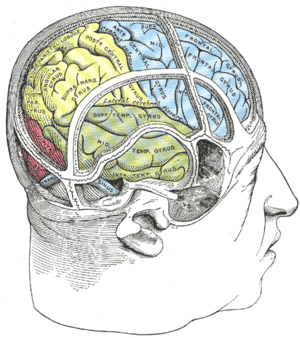Over 32, 000 neuroscientists, from around the world, converged in Washington, DC, this week for the 2011 Society for Neuroscience Conference, which included over 16,000 presentations!
Here are just a few of the highlights:
Christopher Morgan, at the University of Pennsylvania, showed that stress experienced by a pregnant mouse can affect the subsequent behaviour of her sons, and even her sons' sons.
Exposing pregnant females to stressors - like the smell of a fox - during pregnancy seems to trigger heritable changes that make subsequent generations of males more stress-sensitive themselves, and also have lower levels of the hormone testosterone.
 The effect, the researchers found, is down to changes in the levels of a family of gene products called microRNAs, which are used to control the activities of other genes.
The effect, the researchers found, is down to changes in the levels of a family of gene products called microRNAs, which are used to control the activities of other genes.
Exposure to stress switches the profile of these microRNAs so that the brains of developing male foetuses express the same gene pattern as the brains of developing females, triggering a feminising effect.
And because the changes are brought about by what are called epigenetic modifications - this is where chemical groups are added to DNA to control the activity of certain gene sequences - the effects are also inherited by future generations.
This shows that mothers exposed to stress at a critical point in pregnancy could adversely affect the brain development of male offspring. That said, we need to stress ourselves, that this is a study done in mice and we don't know yet whether the same applies to humans...
The conference also has a public lecture series called Dialogues in Society. This year's topic was timely: it focused on how behaviour, and its biological bases, drives the economy.
Dr. Robert Shiller, who's an economist, together with a panel of neuroscientists, discussed the role of decision-making in driving the volatility of money markets, currencies, stocks and commodities.
What they were asking is whether an understanding of the biological mechanisms of reward anticipation, risk-taking, and emotion also play out in financial scenarios too.
This is a relatively new area of inquiry called "neuroeconomics"!
There was also a session on risk aversion and decision-making, which looked at how the brain tries to maximise the sizes of rewards and minimise losses, including in gambling settings.
Danish scientist Dr. Julian Macoveanu found that a drug called ketanserin, which blocks certain receptors for brain transmitter chemical called serotonin, makes people less likely to take a gambling risk, but only after they've already suffered a loss that they judge to be unfair.
According to Macoveanu, "When gambling, people tend to be more sensitive to potential losses than gains of similar amounts, indicating that loss avoidance plays a major role when we make risky decisions."
He also points out that the finding "may have clinical significance because patients with mood and anxiety disorders, some of which are associated with dysfunctions in serotonin transmission, often overemphasise the impact of negative outcomes..."
- Previous Powering up radiotherapy
- Next More superluminal neutrinos










Comments
Add a comment